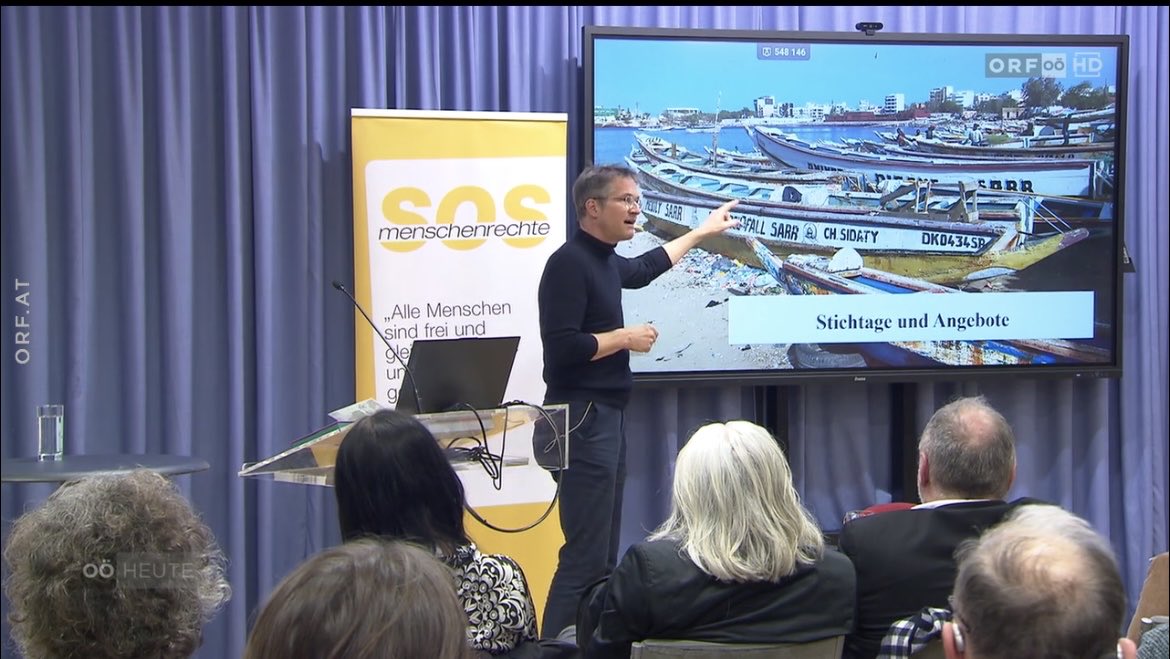Linz – ESI at “Salon for human rights”: Time to rethink Europe’s approach to asylum
ESI’s Gerald Knaus was invited by Austrian NGO SOS-Menschenrechte to give a presentation at the Wissensturm in Linz, Austria.His presentation, titled “Europas Grenzen: Humane Strategie statt illegaler Gewalt“ – Europe’s borders: humane strategies instead of illegal violence – focused on illegal pushbacks at Europe’s external borders, and how there is a better way.
Gerald noted how, in the current system, pushbacks and threats of violence are used in place of a real asylum system. In this way, those who truly require protection do not receive it, and many who do not require protection attempt to come to Europe in extremely dangerous conditions, hoping to take advantage of the current breakdown in asylum protection system. This scenario emboldens the far-right, which feeds off of the resulting breakdown of public order and puts migrants themselves in great danger.
Yet, Gerald argued, there is a better way. He showed that the escalating fear of migration and migrants lacks a basis in reality, as the global number of refugees crossing borders remains stable and low. The number crossing continental borders is even lower – in Europe, the vast majority of refugees have come from European conflicts, such as in Kosovo in the early 2000s and Ukraine today.
Instead of panicking and resorting to violence, Gerald made the case that Europe can welcome migrants, provide protection to those who need it, control its borders, undermine the business model of smugglers and uphold the rule of law. Working with third-country partners, European nations could agree to have all asylum claims processed outside of Europe, with guarantees for the human rights of all asylum seekers and a fair, fast asylum process. Europe could also make deals with partners for the quick return of any migrants whose asylum claims are found to be invalid.
In return, Europe should create legal routes for citizens from these partner countries with training for in-demand jobs on the European labour market. Such a system would spare migrants a deadly sea crossing and ensure that all migrants who arrive in Europe have a realistic outlook for a prosperous life as contributing members of their new communities.
After his presentation, Gerald gave a further interview to local TV station DorfTV:
- ESI proposal: Humane Borders
- ESI proposal: Safe Third Country Agreements
- Dorf TV, Asyl und Menschenrechte – was erfordert eine humane Migrationspolitik?, ("Asylum and human rights - what does a humane migration policy require?"), TV interview with Gerald Knaus, 9 March 2024.

